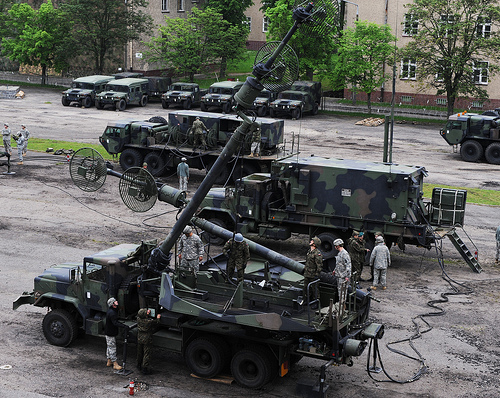
From Ian Brzezinski, New Atlanticist: For Poland, accepting US missile defense deployments has never been driven by fear of Iran; it is rooted in the desire for an American military presence that reinforces the credibility of NATO’s Article V security guarantee. Washington’s repeated delays of deploying missile defense systems to Poland are easily interpreted as an American assumption that Warsaw can be taken for granted and worse as a declining US commitment to Poland’s security. The latter has been reinforced by the Obama administration’s reduction of US forces in Europe and its so-called “pivot” to Asia. . . .
There are steps the US Government can take to mitigate the potentially negative effects its recent decision could have for US-Poland relations.
- Accelerate the construction and stand-up of the planned missile defense interceptor site in Poland. Pouring concrete and deploying personnel early as well as conducting with Poland preparatory military exercises related to the base’s operations would reinforce sense of inevitability now lacking in this dimension of US-Poland relationship.
- Change the name of EPAA. The world “adaptable” should be dropped. It communicates unnecessary flexibility, if not hesitancy and uncertainty, about these plans. The new name should connote inevitability and permanence. A better alternative would be the Tran-Atlantic Missile Defense System (TAM-D).
- US transatlantic missile defense plans should be more clearly linked to the increasingly pervasive and persistent dangers posed by the proliferation of ballistic missile technologies and WMD, rather than be justified primarily by the threats posed by Iran. Today, Poles and others ponder what will happen to these plans if Tehran clearly meets Western demands regarding its weapons programs. Indeed, it remains President Obama’s stated policy to rethink these plans in the event of that outcome. Washington needs to eliminate that ambiguity.
- Demonstrate more interest and support to Poland’s own air and missile defense plans. Currently, the Obama Administration has not embraced this Polish program with full enthusiasm. This is surprising as air and missile defense is an important NATO capability requirement, one whose relevance has been underscored by the Alliance’s recent deployments of PATRIOT batteries to Turkey to guard against Syrian attacks.
A stronger US endorsement of Polish missile defense plans would demonstrate that Washington takes Poland’s security perceptions seriously and that security relations with Central Europe is not a trade-off in the effort to build a partnership with Russia. More importantly, it would reaffirm that Washington envisions US-Poland missile defense cooperation as more than just the leveraging of Polish territory. It would signal determination to have air and missile defense become a shared capability and one that is a robust and unifying pillar of bilateral collaboration among two long-standing strategic allies.
Ian Brzezinski is a senior fellow in the Brent Scowcroft Center on International Security and is on the Council’s Strategic Advisors Group (SAG).
The Atlantic Council hosted an all-day conference on missile defense on March 12. (photo: US Department of Defense Flickr)
Image: 4669565512_805b9df4aa.jpg
